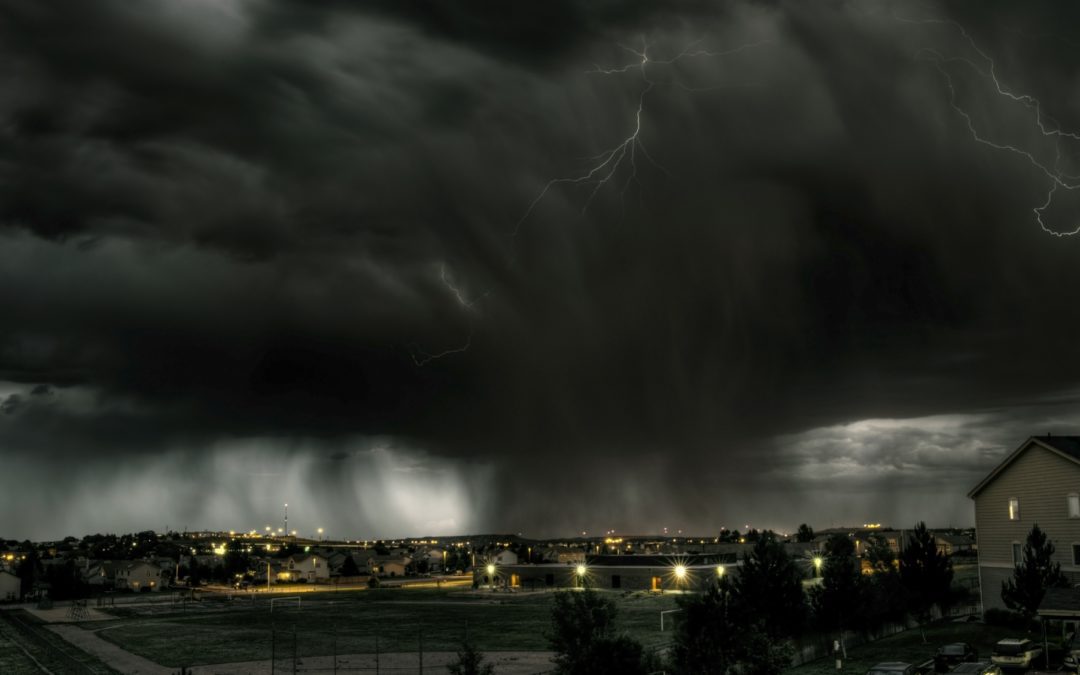A gentle rain shower or a passing evening thunderstorm can be a pleasant change of pace in the weather and an enjoyable experience. However, truly severe weather is no joke, and homeowners should know how to protect their property from potential severe weather events adequately. Depending on where you live, you might only need to worry about massive thunderstorms, or you may need to prepare for the possibility of being struck by a hurricane. Knowing how to prepare your HVAC system for a storm will make it easier to protect this important investment and ensure you can minimize any potential damage.
In this quick guide, we’ll explore what you need to know about prepping home HVAC for severe weather. Keep in mind that some suggestions are best left until you’re sure there’s a real risk to your property. Other steps can be taken as preventative measures, much like regular AC maintenance.
Invest in an Elevated Pad for Your Outdoor Unit
What kind of concrete pad are you using for your outdoor unit? While not necessary for all homes, it can be helpful. Usually provided to give stability to the unit, they can also be a critical anti-flood measure. If you live in an area where a large amount of heavy rain could cause localized flooding, you may want to invest in raising the pad so that it will sit above any water level typical of such events.
Trim Back Tree Branches to Prepare Your HVAC System for a Storm
In the high winds of a severe thunderstorm or an event such as a hurricane, tree limbs and branches from other vegetation can break away and become airborne. If you have tree limbs that overhang the outdoor unit, you may wish to cut them back to have no risk of severe damage. It is also a good idea, in general, to keep vegetation from growing too close to the unit, as debris can prevent the proper operation.
Bring Potential Flying Objects Indoors If You Expect Heavy Winds
Take inside loose lawn ornaments, furniture, and other similar items if the forecast calls for extreme wind. Just as with branches, these objects are dangerous projectiles when airborne in a windy storm. Although the likelihood of an impact taking out your air conditioner might be low, it’s best not to take chances with the weather.
Know When and How to Use an Outdoor Unit Cover Correctly
If you anticipate a hurricane, you may wish to purchase a securable cover for the unit. Your air conditioner cannot run safely when it is covered, so this option should be a “last resort” preparation. Covering the unit keeps excessive rain and vegetative debris from falling into it during a storm.
Secure Units in Non-Traditional Installations
Most units sit on pads by virtue of their own weight and gravity, but “hurricane straps” exist to provide a more secure solution. If you have an air conditioner sitting on a platform on the side of a home, these straps can be essential for keeping your unit in place when the weather gets dicey. Ask your preferred HVAC contractor to help you assess whether such additional measures are the right choice for your home.
Cool Your Home to a Comfortable Temperature Before Storms Strike
If you think you might lose power, take advantage of your foresight and turn down the temperature on the thermostat. Cool the home before the weather turns foul so that if you do lose power, you can remain comfortable for as long as possible — potentially until power returns if the disruption is brief. Be careful not to set your temperature too low, however, as you don’t want to risk taxing your HVAC hardware too much.
Turn Off the Unit At the Breaker If You Lose Power
Finally, consider what to do after you prepare your HVAC system for a storm, such as when you lose power. Some suggest that you should switch off the unit at the breaker box in your home. Although rare, power surges upon electrical restoration could cause damage to the sensitive circuits inside your indoor and outdoor AC units. Shutting off the circuit until power has been safely restored can mitigate this issue.
Take Action Before Storm Season Begins in Earnest
With the right actions, you can prepare your HVAC system for a storm and ensure that it has the best chance of avoiding damage in severe weather events. After the storms pass, always carefully check your system to ensure it is safe to run again, especially if you lost power or experienced power surges. If you experience a problem or notice physical damage caused by the storm, you should contact a trusted local HVAC services provider for help. Keep an eye on the weather and know what you need to do next time the skies darken.

